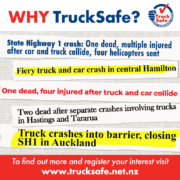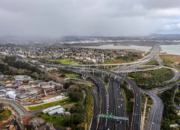TruckSafe sets a new benchmark for transport safety in New Zealand
A major step toward lifting safety, well-being, and compliance standards across New Zealand’s road freight industry has been launched with the rollout of TruckSafe New Zealand, an independently audited, industry-led Safety Management Accreditation System.
Continue reading












